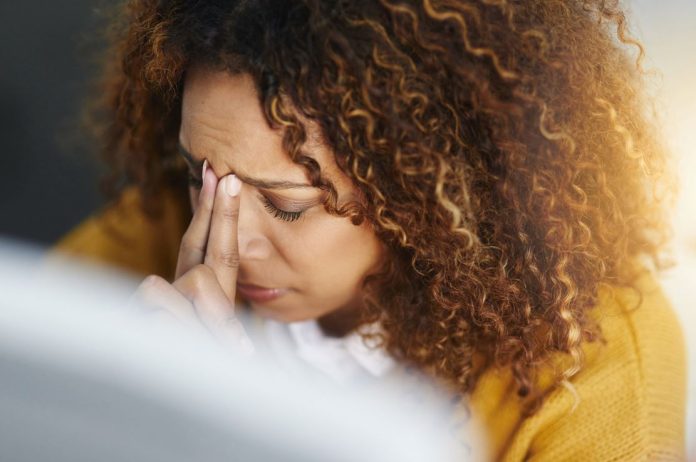Introduction: Why This Question Matters
We’ve all heard someone say, “I’m such an empath,” when they tear up at a sad movie or feel a friend’s pain. But is that empathy—or something deeper? The internet is overflowing with articles comparing the two, but most barely scratch the surface. Let’s push past the clichés and explore what it really means to be an empath—psychic sensitivity and all.
Think of it like the difference between smelling cookies in the oven (empathy) versus knowing they’ll burn before the timer goes off (empathic intuition). One is shared human experience. The other is a spiritual radar tuned to energies most people don’t even register.
This isn’t just wordplay—it’s a vital distinction for anyone wondering if they’re simply compassionate or walking the path of a psychic empath.
Empathy in Everyday Life
Empathy is wired into us. Psychologists explain it through mirror neurons—special brain cells that let us feel what others feel. It’s why you cry during The Notebook or feel your stomach sink when your best friend gets dumped.
Everyday empathy looks like:
Nodding along when a coworker vents about their boss
Crying when your child scrapes their knee
Feeling uneasy after watching the evening news
That’s empathy. Beautiful, vital, but part of the standard human emotional package. As the American Psychological Association explains, empathy is about recognizing and sharing another person’s emotions—full stop.
What Makes an Empath Different
Here’s where the plot thickens. An empath doesn’t just relate to emotions—they absorb them, sometimes to the point of physical overload.
If empathy is standing in the rain with someone, being an empath is walking away drenched, even if you never left the house.
Signs you might be an empath:
Crowded malls leave you dizzy or anxious
Hospitals give you headaches, even when you’re not sick
You feel emotions that don’t belong to you
Example: Maria, a teacher, used to get sudden migraines every time she visited her grandmother in the hospital. Doctors found nothing wrong with her, but Maria eventually realized she was absorbing the grief and fear swirling in the ward.
Being an empath isn’t a trendy buzzword—it’s a psychic gift that comes with responsibilities.
The Psychic Dimension of Empaths
Empaths often overlap with psychic abilities. Their “sixth sense” tunes into vibrations beyond typical human awareness.
Types of empaths include:
Emotional empaths: absorb others’ feelings like sponges
Physical empaths: feel other people’s aches and pains
Intuitive empaths: just know things without explanation
Animal empaths: deeply connected to pets and wildlife
Environmental empaths: sensitive to places, weather, or even planetary shifts
Psychologists might chalk this up to heightened sensitivity, but psychics see it as clairsentience—clear feeling. This is why many empaths later discover they’re natural mediums, healers, or intuitive guides.
As Verywell Mind notes, empathy helps relationships. But for an empath, it’s not just helpful—it’s destiny calling.
Empathy vs. Empath: Spotting the Difference

Let’s make this crystal clear with a side-by-side comparison:
| Empathy | Empath |
|---|---|
| You cry when your friend cries | You feel your friend’s heartbreak before they speak |
| You get chills at a sad movie | You can’t watch violent films without feeling sick |
| You comfort someone who’s upset | You become upset until you clear the energy |
| You know when a coworker is stressed after they tell you | You feel their stress the moment they walk in the room |
Example: A psychic empath named Danielle sensed her roommate was about to break up with her boyfriend days before the conversation happened. She didn’t overhear anything—she felt the relationship unraveling like static in the air.
That’s not ordinary compassion. That’s empathic psychic ability.
The Shadow Side of Being an Empath
Being an empath isn’t all glowing aura photos and soulful hugs. There’s a darker side, too.
Challenges include:
Emotional exhaustion
Attracting toxic, narcissistic partners
Physical symptoms like anxiety or chronic fatigue
Example: Kevin, a nurse, left his career after constant exposure to suffering drained his spirit. He wasn’t just sympathizing with patients—he was carrying their pain in his own body.
This is where psychics come in. With guidance, empaths can learn to shield themselves, protect their energy, and turn a burden into a calling.
Why Empaths Need Psychic Guidance
Here’s the persuasive twist: empaths often flounder until they seek psychic mentoring. A psychic can help you:
Build energetic shields
Separate your feelings from others
Discover if your empath gift is linked to past lives or soul contracts
Psychics aren’t just fortune-tellers. They’re like coaches for sensitive souls navigating an overwhelming world. As MindBodyGreen highlights, holistic practices like meditation and intuitive training are essential for empath survival.
Practical Tools for Empaths
Managing empath energy isn’t guesswork—it’s spiritual hygiene.
Try these:
Grounding rituals: walking barefoot, hugging a tree, gardening
Psychic shielding: imagine a bubble of light around you before stressful events
Aura cleansing: salt baths or Reiki sessions
Crystals: black tourmaline for protection, rose quartz for self-love
Journaling: track when and where you feel drained to spot patterns
Example: Sarah, an empath in corporate law, started wearing black tourmaline jewelry. She reported fewer panic attacks in court and better sleep. Small tool, huge shift.
Reframing Sensitivity as a Superpower
Too many empaths think, “Why am I so weak?” But let’s reframe: your ability to feel deeply is a superpower.
Empaths make extraordinary healers, artists, activists, and leaders. Oprah Winfrey herself often talks about sensing the energy of the room—classic empath behavior.
Your gift isn’t a curse—it’s a calling.
Love and Relationships as an Empath
Relationships can be tricky. Empaths often:
Take on a partner’s moods as their own
Over-give to the point of burnout
Struggle with boundaries
Example: Jenna, an empathic client, realized she was carrying her boyfriend’s stress from work as if it were her own. With psychic coaching, she learned to visualize a protective aura, allowing her to support him without drowning in his emotions.
This is where psychic insight can save not only your heart but your energy.
Empaths and the Collective Energy of the World
Here’s a piece rarely mentioned in other articles: empaths often feel global events.
When natural disasters strike or political unrest unfolds, empaths may feel anxious without knowing why. They’re plugged into the collective consciousness.
This is why many empaths become activists, artists, or spiritual teachers. They’re not just sensitive—they’re channels for healing humanity.
Final Word: Psychic Pathways for Empaths
If you’re wondering whether you’re just compassionate or truly an empath, here’s the takeaway: empathy makes you human. Being an empath makes you a spiritual powerhouse.
Don’t stumble through life overloaded by emotions that aren’t yours. Seek guidance, explore your gift, and discover how psychic insight can help you thrive.
FAQ: Are You an Empath or Just Have Empathy?
What’s the core difference between empathy and being an empath?
Empathy is feeling with someone; being an empath is absorbing energy and emotion as if it were yours, often with physical or intuitive spillover.Can I be empathetic without being an empath?
Yes. Most people are empathetic at times. Empaths experience consistent, intense sensitivity that affects mood, body, and decisions.How do I know if emotions I feel are mine or someone else’s?
Check context and timing. If a strong feeling appears “out of nowhere” and shifts when you change environments or distance, it may be absorbed energy.Do empaths have physical symptoms from other people’s emotions?
Often. Headaches, stomach flutters, fatigue, or tight chest can mirror what others feel, then ease once you clear or leave the energy.Is being an empath a psychic ability?
Many empaths also show clairsentience—clear feeling—and may receive intuitive hits, body cues, or premonitions tied to others’ states.Can I “turn off” my empath sensitivity?
You can’t switch it off, but you can regulate it with grounding, shielding, breathwork, brief resets, and intentional alone time.Why do crowded places overwhelm me?
Multiple emotional signals stack at once. Without boundaries, your nervous system tries to process all of them, leading to overload.How can I set energetic boundaries without feeling cold?
Use simple scripts and visuals: “I care, and I’ll hold what’s mine.” Picture a light bubble around you while staying warm and present.What is psychic shielding and how do I do it fast?
It’s a brief intention practice. Imagine a protective field around you; on the exhale, seal it. Reapply after emotional interactions.Which crystals are helpful for empaths?
Black tourmaline for protection, hematite for grounding, rose quartz for self-compassion, amethyst for clarity. Treat them as tools, not cures.Why do I feel drained after helping someone?
You likely merged, not mirrored. After a conversation, shake out your hands, breathe deeply, and imagine returning energy that isn’t yours.Are there different types of empaths?
Yes: emotional, physical, intuitive, animal, and environmental. Many people blend two or more types.Can empaths sense breakups or conflicts before they happen?
Sometimes. Subtle cues and energy shifts may register as unease, heaviness, or sudden thoughts that later prove accurate.How do I date as an empath without losing myself?
Set rhythm and rituals: pre-date grounding, post-date reset, honest check-ins, and clear agreements about alone time.What jobs suit empaths?
Coaching, counseling, nursing, design, art, writing, energy work, animal care—roles that value sensitivity and presence with strong boundaries.How do I stop attracting emotionally heavy people?
Change your broadcast. Practice saying no, reduce rescuing behavior, and lead with reciprocity: “I share support where it flows both ways.”Are kids more likely to be empaths?
Some are. Sensitive children may cry easily, dislike loud spaces, or comfort others instinctively. Teach simple grounding early.What’s a quick daily routine to stay balanced?
Three steps: feet on floor for 60 seconds, breath in 4/out 6 for five cycles, visualize light around you. Add a short journal note.How can a psychic reading help an empath?
A skilled reader can identify your type, map triggers, teach shields, and validate intuitive hits so you trust yourself and use the gift wisely.Is it okay to avoid certain environments?
Yes. Discernment isn’t weakness. Choose spaces that support your nervous system while building capacity through gradual exposure and tools.How do I handle world events that make me anxious?
Limit inputs, balance news with nature, and transmute energy through service, art, or prayer. Ground first; act second.Can empathy grow into empathic ability over time?
Sensitivity can deepen with practice and self-awareness. As you listen to your signals and regulate well, your intuitive channel often refines.What if my family doesn’t understand my sensitivity?
Name it simply: “I process feelings strongly; here’s what helps.” Ask for one concrete change—quieter mornings, a pause before heavy topics.How do I protect my energy at work?
Bookend your day with grounding, set meeting intentions, use brief resets after tough calls, and keep clear time boundaries on support.What’s the fastest way to clear energy after a hard day?
Water, breath, and movement. Quick shower, longer exhale breathing, and a brisk walk while visualizing excess energy rinsing away.





Thank you for this enlightening article! It’s refreshing to see a nuanced distinction between being empathetic and being an empath. The guidance on how to cultivate and embrace empathic gifts is particularly valuable. As someone who has often felt overwhelmed by external energies, your advice on raising vibrations and harnessing inner power resonates deeply. This piece is a beacon for those of us navigating the complex emotional landscapes as empaths. Kudos!
I appreciate the practical advice given for empaths to harness their abilities. Accepting and understanding oneself is a journey, and it’s inspiring to see encouragement to manifest positivity and embrace one’s true self. This can be particularly beneficial not only to empaths but also to those around them.
I find the concept of tapping into one’s higher self to overcome fears and negativity quite fascinating. This article does a good job of outlining how personal growth and self-acceptance can empower an empath to make positive changes in their life and the lives of others.
The notion of empaths needing to ground themselves and remain strong to use their gifts effectively is quite compelling. It’s interesting to see how embracing such a gift can lead to personal growth and increased well-being for both the empath and those they help.
The characteristics listed for empaths resonate with a lot of people who might not even realize they have these gifts. However, the emphasis on self-care and setting boundaries is crucial. It can be overwhelming to constantly absorb others’ emotions, and finding ways to cope healthily is essential.
The distinction between being empathetic and being an empath is an important one. While empathy involves understanding and sharing the feelings of others, being an empath entails experiencing those emotions firsthand. This article provides valuable insights for anyone who identifies as an empath and seeks to manage their unique abilities effectively.